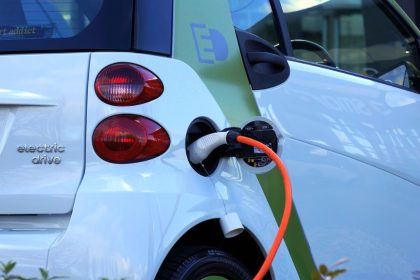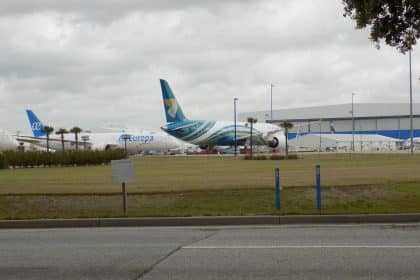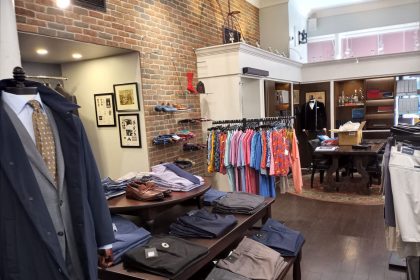Panelist Says Counterfeit Goods a ‘Globalized Business’

WASHINGTON — If you do a quick Google search for fake Apple Airpods, an almost endless list of options will come up, said Piotr Stryszowski, senior project manager at the Organization for Economic Development and Cooperation, Thursday.
Not only does the counterfeit problem affect the U.S. economy, but it threatens the health and safety of consumers, as well as depressing the economic incentive to innovate, Stryszowski said during an Information Technology & Innovation Foundation event entitled, “A data-driven approach to combating counterfeit goods in e-commerce.”
“We’ve even seen counterfeit COVID vaccines,” Stryszowski said.
“The scale and scope of the problem continue to grow,” said Matt Allen, director of the National Intellectual Property Rights Coordination Center which combats global intellectual property theft under the U.S. Department of Homeland Security. This year alone, in one location the DHS seized about a billion dollars worth of counterfeit goods, based on the manufacturer’s suggested retail price.
The DHS had already seen a tenfold increase in the number of counterfeit goods seized, from 3244 in 2000 to 33,810 in 2018, Allen said.
Stryszowki pointed out that counterfeiting can target every good covered by intellectual property rights, but in many countries it is not seen as being as harmful as drug smuggling. But the smuggling of counterfeit goods, he warned, can be devastating to economies.
“Two years ago, global trade and counterfeits amounted to $460 billion…This is not a jackpot in a lottery, this is [the Gross Domestic Products] of countries,” Stryszowski said.
“Counterfeiting is a globalized business that exploits governance gaps, that exploits the fact that brands bring trust and trust brings profit opportunities for those who want to freeride,” he added, explaining that smugglers will target modern logistical solutions like fast parcels, Free Trade Zones (FTZs) or e-commerce platforms like Amazon and Walmart.
It is difficult for all these global authorities and private companies to share information when the “volumes of trade are so humongous,” he said. You cannot “make manual checks of every parcel that enters the U.S.” The majority of these fake goods come from China, he added, but the smugglers will just “[blur] the country of origin in order to turn customs and enforcement officers’ life into a hell,” often forging documents and rerouting goods to FTZs to “make sure they were below on the radar screen of customs.”
Both from a customer and third-party seller perspective using the authentic e-commerce marketplaces, making sure that the customer is receiving what they ordered and ensuring that the seller’s “brand and their intellectual property is protected” is a priority, said Sarah Decker, senior director of government affairs at Walmart.
Walmart, she added, has built a business model “around a curated marketplace [that verifies] our sellers before they have access” to it, allowing Walmart to keep the number of counterfeited goods to 0.01%.
Public health and safety items, she added, have been a target since COVID hit, so they went into their marketplace to “brand gate.” For example, foreseeing that their customers would want to get antibacterial cleaning supplies, Walmart ensured only a trusted brand like Clorox would be sold.
The diversity of the supply chain, despite being good for competition and consumer choice, presents another challenge, said Christa Brzozowski, senior manager of public policy at Amazon.
The number of players in the supply chain has grown so much in the last five years that now collaboration in detecting bad actors and holding them accountable needs to meet this exponential growth.
This is where information sharing plays a key part, Allen said, as the “more data we can get from that entire ecosystem [of e-commerce marketplaces] together, to compare notes and look across the platforms…the better off we will be.”
In the last year, he added, four of the e-commerce platforms in the U.S. have selected a subcontractor to act as a repository to do data analysis. The next milestone will be to get the express consignment companies, the U.S. Postal Service and payment processor information into the same ecosystem to take a broader look at where the criminal activity is taking place.
Victoria can be reached at [email protected]























